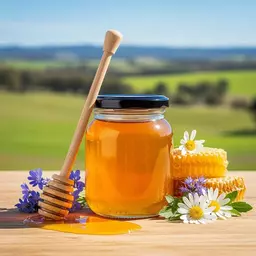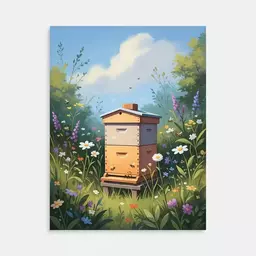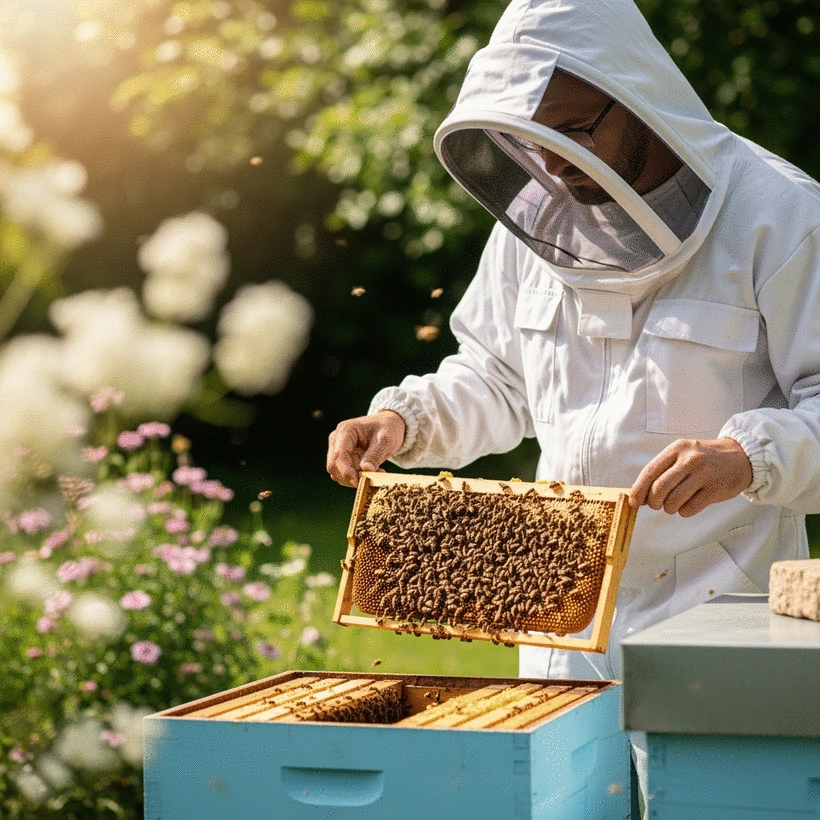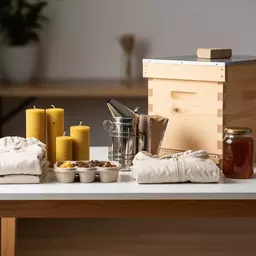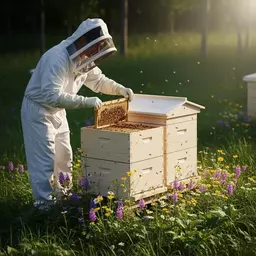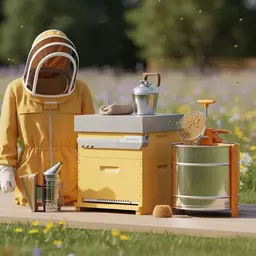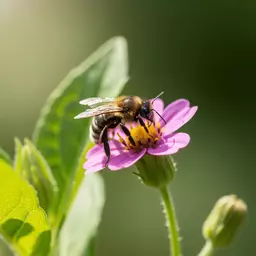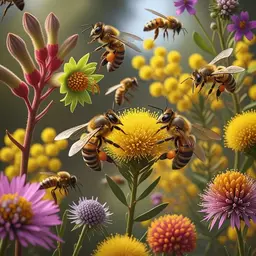Buying Bees for Your Hive
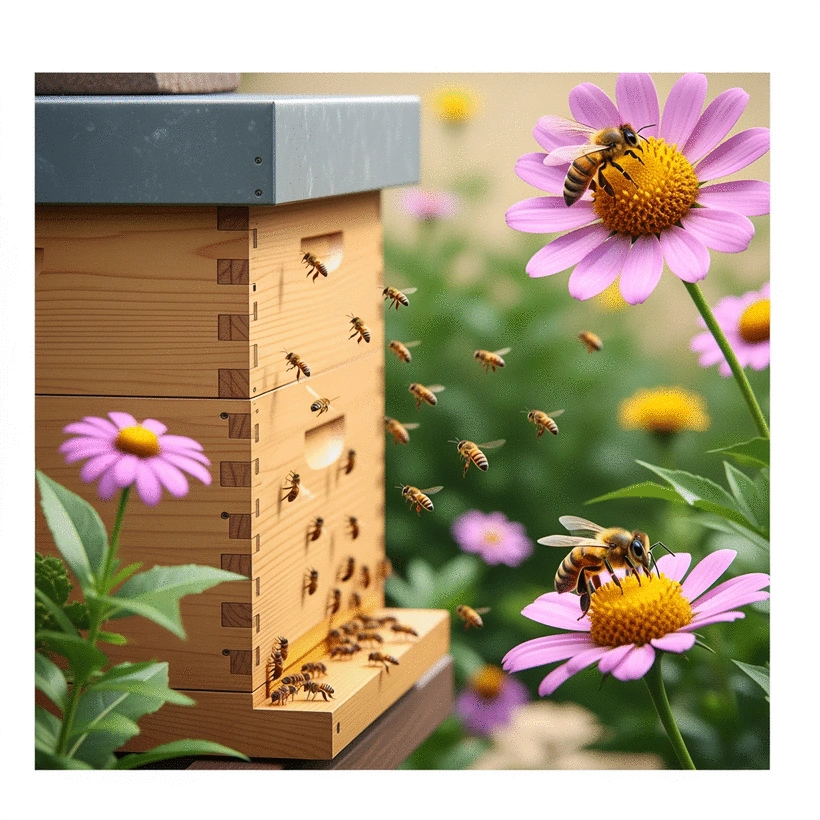
Have you ever thought about the profound impact that honey bees have on our ecosystems and food production? Starting your own backyard hive not only connects you with nature but also supports vital pollination efforts. Here’s a guide to help you embark on this rewarding journey!
What You Will Learn
- The vital role of honey bees in enhancing local ecosystems through improved pollination.
- Key beekeeping supplies you'll need, including different hive types and essential tools.
- The importance of enrolling in beekeeping courses for foundational knowledge and support.
- Guidelines for selecting reliable suppliers that prioritize sustainability in beekeeping practices.
Key Steps for Starting a Backyard Hive
This visual outlines the essential steps and considerations for aspiring beekeepers, from research to community engagement.
Why Start a Backyard Hive?
- ●Support local ecosystems through pollination.
- ●Enjoy fresh, homemade, unprocessed honey.
- ●Engage in a rewarding, well-being promoting hobby.
- ●Contribute to bee conservation efforts.
Essential Supplies
- ●Beehive: Langstroth, top-bar, or Warre.
- ●Protective Gear: Suit, gloves, veil.
- ●Smoker: Calms bees for handling.
- ●Hive Tool: Manages frames and opens hive.
Learning & Education
- ●Local Beekeeping Associations for workshops.
- ●Online Courses (e.g., Coursera, Udemy).
- ●Books & Resources (e.g., "Beekeeping for Dummies").
Your Next Steps to Start a Hive
- Research and select a supplier.
- Purchase necessary equipment.
- Choose your bee source (packages, nucs, swarms).
- Set up apiary in a sunny, sheltered location.
- Stay informed through books, courses, associations.
Understanding the Basics of Backyard Beekeeping
Becoming a backyard beekeeper is both rewarding and fascinating! With a gentle hum of activity around your garden, you can contribute to the crucial work of honey bees while enjoying the sweet rewards of their labor. Backyard beekeeping is not just about honey production; it’s about supporting our ecosystems and promoting biodiversity. Let’s dive into the essentials of starting your own hive!
Why Start a Backyard Hive?
Have you ever considered the vital role honey bees play in our food systems? By starting a backyard hive, you’ll not only be connecting with nature but also helping to improve pollination in your local area. This creates a healthy environment for your plants and can even increase your garden's yield! For a comprehensive introduction to the world of bees, check out our Beginner's Guide to Honey Bees.
- Support local ecosystems by enhancing pollination.
- Enjoy fresh, homemade honey that’s pure and unprocessed.
- Engage in a rewarding hobby that promotes mental well-being.
- Contribute to bee conservation efforts and sustainability practices.
Joining the beekeeping community can be a fulfilling journey. You’ll meet fellow enthusiasts, share tips, and work together to protect these essential pollinators. It’s a great way to foster a sense of community while doing something good for the planet!
Essential Beekeeping Supplies and Equipment
Before diving into beekeeping, it’s crucial to gather the right tools. While it might seem overwhelming at first, I promise that with a little planning, you’ll have everything you need to set up your hive.
- Beehive: This is the home for your bees, and there are various designs like Langstroth, top-bar, or Warre hives.
- Protective Gear: A bee suit, gloves, and a veil are essential to keep you safe while working with your bees.
- Smoker: A smoker calms the bees and allows you to work with them more easily.
- Hive Tool: This handy tool helps you open the hive and manage frames.
Investing in quality beekeeping supplies can make a world of difference! At Nectar Network, we recommend carefully selecting durable equipment that will last you for years to come. Don’t hesitate to reach out if you have any questions about where to find the best products! If you're looking for recommendations on what to get, explore our guide on Beginner Beekeeping Kits to Consider.
Exploring Beekeeping Courses for Beginners
If you’re just starting, consider enrolling in a beekeeping course. Education is vital in ensuring the health of your future hive. Many local associations and online platforms offer courses designed for beginner beekeepers!
- Local Beekeeping Associations: Many provide beginner workshops and hands-on experience.
- Online Courses: Platforms like Coursera or Udemy have accessible options with certification.
- Books and Resources: Check out guides like “Beekeeping for Dummies” for foundational knowledge.
By taking a course, you’ll gain confidence and knowledge, allowing you to manage your hive more effectively. Plus, it’s a great way to meet others who share your passion for bees!
Pro Tip
Did you know? Establishing a diverse garden with a variety of flowering plants not only supports your bees but also enhances the flavor profile of the honey they produce. Consider planting native flowers that bloom at different times throughout the season to ensure a steady food source for your bees!
Frequently Asked Questions About Backyard Beekeeping
Why should I start a backyard hive?
Starting a backyard hive helps support local ecosystems through enhanced pollination, provides fresh, unprocessed honey, offers a rewarding hobby for well-being, and contributes to essential bee conservation efforts.
What essential supplies do I need to start beekeeping?
You will need a beehive (such as Langstroth, top-bar, or Warre), protective gear (suit, gloves, veil), a smoker to calm the bees, and a hive tool to manage frames and open the hive.
Where can I learn more about beekeeping?
You can learn through local beekeeping associations which offer workshops, online courses from platforms like Coursera or Udemy, and various books and resources such as "Beekeeping for Dummies."
How do I choose a reliable supplier for beekeeping?
Look for suppliers with a positive reputation, a wide product range (bees, equipment, accessories), good customer support, and those who prioritize sustainable beekeeping practices.
What are the steps to setting up my first hive?
The steps include researching and selecting a supplier, purchasing necessary equipment, choosing your bee source (packages, nucs, swarms), setting up your apiary in a sunny, sheltered location, and staying informed through continued learning from books, courses, and associations.
Summarizing Key Considerations for Beekeeping Success
As we wrap up our journey through the world of beekeeping, it’s essential to reflect on the key elements that will pave the way for your success. Whether you're a novice eager to start your first hive or a seasoned keeper looking to enhance your practices, understanding these fundamental aspects can make all the difference in your beekeeping adventure!
Revisiting Trusted Suppliers and Their Importance
Choosing the right suppliers for your beekeeping needs is a cornerstone of sustainable practice. Reliable suppliers not only provide quality bees but also the necessary equipment and support. Here are a few points to keep in mind when selecting your suppliers:
- Reputation: Look for suppliers with positive customer reviews and a solid track record.
- Product Range: A good supplier should offer a variety of bees, equipment, and accessories to meet your specific needs.
- Customer Support: Find suppliers that are willing to provide guidance and support, especially if you're just starting out.
- Sustainable Practices: Opt for suppliers who prioritize sustainability, ensuring that you are investing in practices that protect our environment.
Remember, at Nectar Network, we advocate for building relationships with suppliers who not only understand beekeeping but also share a passion for preserving our precious pollinators. This connection can lead to valuable advice and insights that help you thrive in your beekeeping journey.
Your Next Steps in Starting a Backyard Hive
With the foundational knowledge about suppliers and equipment firmly in place, it’s time to take action! Here’s a quick checklist of steps to kickstart your backyard hive:
- Research and select a supplier that aligns with your values.
- Purchase the necessary equipment, including a hive, protective gear, and tools.
- Choose your bee source: packages, nucs, or swarms.
- Set up your apiary in a sunny, sheltered location. For tips on how to prepare your space, read our guide on Designing Your First Apiary Layout.
- Stay informed by reading books, attending courses, or joining local beekeeping associations.
Each step moves you closer to creating a thriving environment for your bees. Don't forget to enjoy the process! Beekeeping is as much about the journey as it is about the destination.
Connecting with Beekeeping Networks and Events for Continued Learning
One of the best ways to grow as a beekeeper is to engage with the community. Connecting with fellow beekeepers can provide a wealth of knowledge and support. Here’s how you can immerse yourself in the beekeeping community:
- Join Local Beekeeping Associations: These groups often offer resources, mentorship, and opportunities to network.
- Attend Workshops and Events: Look for local events or workshops to learn hands-on skills and meet other beekeepers.
- Participate in Online Forums: Engage in discussions and share experiences on platforms like online forums and social media groups.
By fostering connections within the beekeeping community, you'll not only enhance your skills but also contribute to the collective effort of protecting honey bees. As we move forward, remember that every action you take helps create a healthier environment for our buzzing friends!
Recap of Key Points
Here is a quick recap of the important points discussed in the article:
- Starting a backyard hive supports local ecosystems by enhancing pollination and promoting biodiversity.
- Essential beekeeping supplies include a beehive, protective gear, a smoker, and a hive tool.
- Consider enrolling in beekeeping courses or joining local associations for proper education and support.
- Choose reliable suppliers with a good reputation, product range, and sustainable practices for your beekeeping needs.
- Engage with the beekeeping community by attending workshops, events, and participating in online forums for continued learning.
